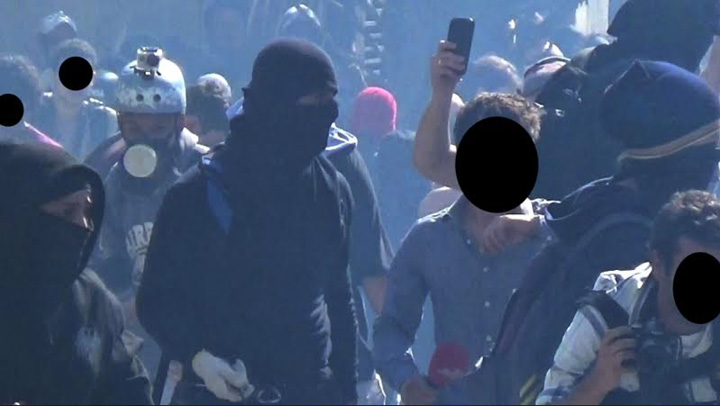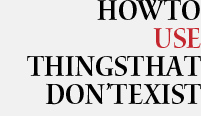
The second part of the RIGHT to the City symposium, co-organised by Raquel Rolnik and Zeyno Pekunlu, aims to discuss two connected issues in two places. The first day will analyse current crowd control politics regarding the criminalization of the poor and the militarization of the police in both Brazilian and Turkish cities. The second day will look more broadly at the role of engaged art in urban contexts, its relation to activism and the question of who benefits from such practices. The symposium brings together artists, activists and academics from Turkey and several Brazilian cities.
November 22, Saturday
Crowd control, criminalization of the poor and the militarization of the police
Mediation: Raquel Rolnik and Zeyno Pekunlu
12h - 12h45: Production of spaces, forms of control and conflicts, Vera Telles
The hostile language and militarized management of urban spaces are themes that are visible in globalized cities today, with the debate centering on the meanings and effects of the security-driven logic that rules the management of cities and their spaces, populations, manners and movements. While the evidence is plentiful, the nexuses which articulate the government of security, the government of urban spaces and the strategies of marketization of the city still remain to be understood. In other words, the nexuses between strategies of power, violence and production of markets. Using recent events in Sao Paulo (and other cities) as a reference, the hypothesis which this exhibition intends to explore is that the forms of control currently inscribed in the production of urban spaces seem to configure fields of tension and gravitation of urban conflict, which provides us with clues for understanding the political nature of recent urban configurations.
13h - 14h30: Lunch break
14h30 - 15h15: Police Violence and Dangerous Classes: The possibilities of politics in the age of security and anti-politics, Deniz Yonucu
Drawing mainly on the cases of police violence and crime in Istanbul’s working class neighborhoods and giving examples from the USA, France and Brazil, in this talk I will discuss how the criminalization of (racialized) urban poor youth and the association of danger with poverty is translated into violence in the everyday lives of the urban poor populations. Following French philosopher Rancière, I will introduce a broader definition of the police that goes beyond the state security apparatus. I will argue that the modern security state formations, which put the police at the center of the social order, actively attempt to depoliticize potential or actual political struggles. Hence, this talk, drawing on cases of police violence, will invite the audience to reflect on the relation between the police and politics and question the possible forms of politics under the police/security regime we live in.
15:45 - 16:30: The margins of Brazilian development: violence and military control of the urban poor, Gabriel Feltran
Brazil is currently undergoing a major transformation largely due to the economic development experienced over the last decade. On one hand, unemployed rates reached the lowest level in history and social indicators are slowly improving. On the other hand, such a scenario expresses renewed levels of urban conflict, huge protests and violence. This paradoxical scenario may be specifically gauged in the territories and social groups considered “marginalized”. Manual laborers or poor evangelical believers can easily buy iPhones; at the same time, all of them have much more probability of being arrested. The presentation reflects on the differential ways (military control, incarceration, social management, monetarization) by which marginal territories and populations are being controlled in contemporary Brazil and how it could be converted in terms of “development”.
17h - 18h30: Discussion panel and presentations, Almires Martins, Clara Ianni, Débora Maria da Silva, Éder Oliveira
19h: Screening of Z32, followed by conversation with director Avi Mograbi
Z32 is built around a confession— a young man’s account of his participation in the revenge killing of two Palestinian police officers by the Israeli army in the occupied territories. Around the soldier’s account Mograbi interweaves a couple’s extended and often agonising discussion of their relationship, punctuated by Mograbi himself characteristically addressing the camera. Adding further layers of complexity are the use of a digital “mask,” both to disguise the young soldier’s identity and foreground the politics of the camera as witness, and Mograbi’s radical decision to perform his own musings as Brechtian songs, set to Weillian music. The radical elements of Mograbi’s project combine to raise painful and unsettling questions about responsibility, forgiveness and the shape of cinematic truth.
November 23, Sunday
The Role of engaged (activist) Art
Mediation: Galit Eilat
12h - 12h45: Dividual Activism in Machinic Capitalism, Gerald Raunig
The centuries old system of the individual is breaking down and the age of the dividual is upon us. The bad news is that this dividual’s appearance is largely marked by an intensification of exploitation and slave labour under machinic capitalism. The application of algorithms, derivatives, big data and social media only serve the rampant expansion of divisive management strategies and demands to split the self into parts. The good news however is that on this same terrain of the dividual a new kind of resistance can emerge, one that appears in concepts such as multiplicity, molecular revolution and con-division.
13h - 14h30: Lunch break + Book Launch The Space as the Work: Actions, Art Collectives and City, by Joana Zatz Mussi. A co-edition: Annablume and Invisíveis Produções, with support of Fapesp (Fundação de Amparo à Pesquisa do Estado de São Paulo)
14h30 - 15h: Urban Temporalities and Artistic Actions: mutual tension at the present time, Vera Pallamin
Contemporary urban conditions are currently based on dynamics associated with the globalization of the market and capital, involving distinct rhythms of spatial fragmentation and social segregation, and favoring the supremacy of production of surplus and of value. We exist in a preponderant order of time ruled on one hand by a prolonged present, which disempowers the future, and on the other by the praise of the immediate, expressed by digital technology, by control and by consumerism. It is interesting for us to think, according to this tension, about how artistic actions in urban spaces seek to escape these dominant temporal categories.
15h - 15h30: “Can be Seen until the Demolition”: Urban Ruins, Street Art, and Gentrification in İstanbul, Begüm Özden Firat
By focusing on four consecutive street art events which took place in the state-led gentrification area in Tarlabaşı, this presentation will discuss the ways in which street art practices can become complicit with the processes of urban gentrification.
15h30 - 18h: Round table - The Role of engaged (activist) Art and its beneficiaries, Ali Taptik, Comboio e Moinho Vivo, Grupo Contrafilé, Meir Tati, Serkan Taycan
Withdrawal: Negotiating art and activism from a compromised position, by Ali Taptik
I have been engaged with various opposition groups before and after Gezi Resistance, choosing to withdraw from artistic practices and work more as an activist. The talk will be an elaboration on my personal engagement with different groups like the Initiative for the Preservation of Historical Vegetable Gardens of Yedikule. What does it mean to be a compromised artist? Could our vertical and horizontal mobility make an artist an effective negotiator, or are we just fooling ourselves?
Engagement with the world, Grupo Contrafilé
The group Contrafilé will present some of their work with the objective of reflecting on “engagement in art” as a series of material and immaterial operations that allow for an “engagement with the world.” The intention is not, however, to discuss something “outside” of oneself, but rather ways and devices by which this sort of “crossing” can be experienced.
How to work in a country that doesn't want you there?, by Meir Tati
During the last summer in Israel the same cycle of war repeated itself. This time the difference was a general strong feeling of hate towards anyone who did not hold a right-wing, pro-war standpoint. This hatred and persecution flooded the social network, the media and the streets. At demonstrations, the police were instructed to keep us participants safe from right-wing protesters, though they had no desire to do so. It was the first time that I didn't understand why I live in a country that does not want me there. In my presentation in will talk about my activities as an artist and the Director of Community and Education Department at MoBY - Museums of Bat - Yam, working in the Israeli political climate.
Walking through the future: Between Two Seas, Serkan Taycan
Between Two Seas is a four-day walking route in the near west of Istanbul, between the Black Sea and the Marmara Sea, which allows one to experience the threatening transformation of Istanbul on foot. The total length of the trail is 60 kilometres. The route is composed of four 15-kilometer parts and can also be covered over four separate days. Layer by layer, the route progresses from the outermost periphery of the city to its centre. It passes through rural areas, forest and water basins to reach the city centre. The trajectory also passes through lignite mines, the area earmarked for the new airport, the road leading to the 3rd Bosphorus Bridge, excavation dump sites, industrial sites and housing areas, as well as sites of cultural and historical significance such as the Yarımburgaz Cave, which is the oldest settlement in Istanbul, and inner-city vegetable gardens. Between two seas is both a proposal and an invitation. It is an action that celebrates the rhythm of walking which opens the soul to perceive the world. And this action is perhaps the most auspicious ‘project’ that opens a ‘passage’ between the Black Sea and the Marmara Sea.
| Image: Não é sobre sapatos [It is not about shoes]. 2014. Video. Gabriel Mascaro




